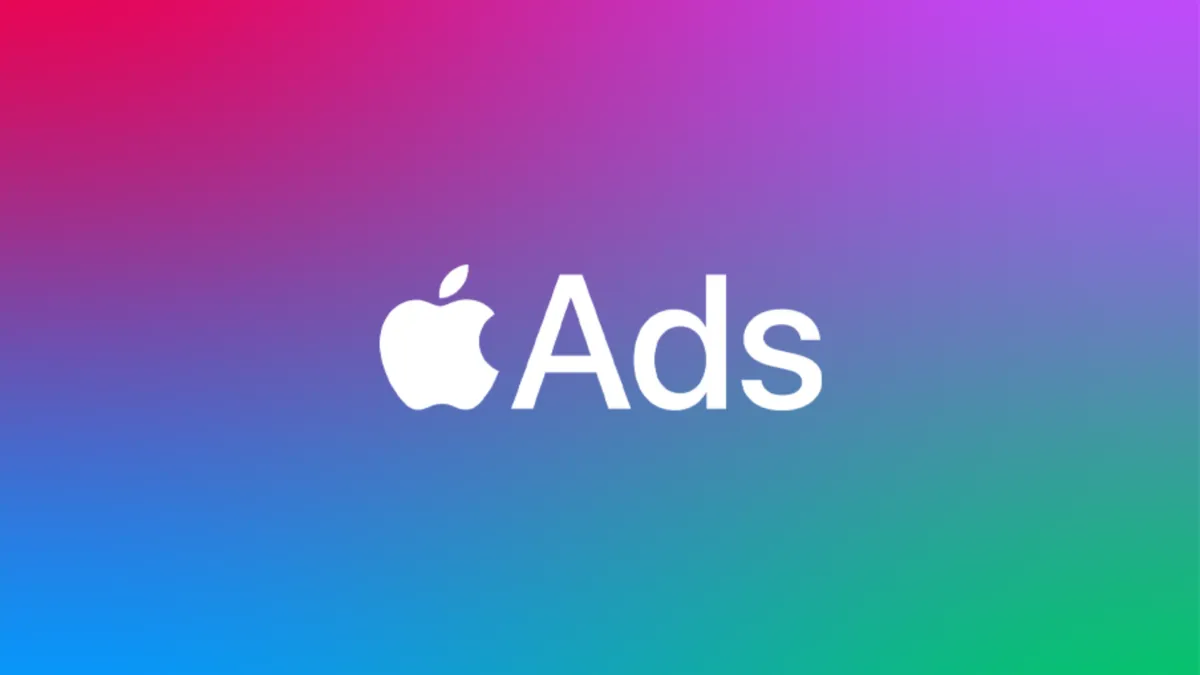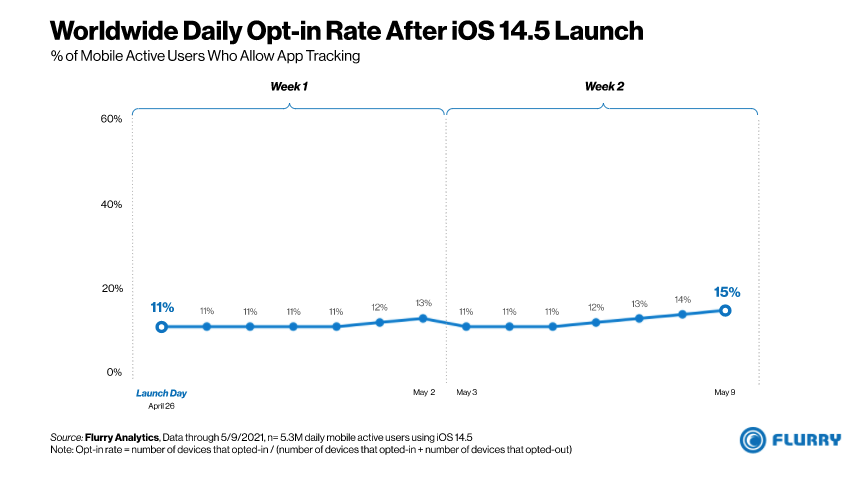
Apple has officially rebranded its advertising business from "Apple Search Ads" to "Apple Ads," the company announced on April 14, 2025. This name change reflects Apple's expanded advertising offerings beyond its original search-only placements and potentially signals broader advertising ambitions for the tech giant.
The rebrand comes just weeks after French regulators imposed a €150 million fine on Apple over its App Tracking Transparency (ATT) framework, finding that the implementation created unfair advantages for Apple's own advertising services while disadvantaging competitors.
"When Apple Search Ads launched in 2016, we offered a single ad placement at the top of search results. Today, advertisers can run ads in multiple placements across the App Store, so we've decided to change our name," Apple explained in a message to participating developers.
Evolution of Apple's advertising business
What began in 2016 as a single ad placement at the top of App Store search results has expanded significantly over the years. Today, Apple offers advertising placements in multiple locations throughout the App Store ecosystem:
- The Search tab (both at the top of search results and before search happens)
- The Today tab (featuring larger, more dynamic ad formats)
- "You Might Also Like" section at the bottom of other developers' app product pages
According to multiple reports across tech publications, the new name better reflects the current state of Apple's advertising offerings while potentially setting the stage for further expansion. As Benjamin Mayo of 9to5Mac noted, "The simpler and more generic Apple Ads brand would more appropriately encompass such an endeavor."
Timing raises questions about future expansion
/pu
The timing of Apple's name change has captured the attention of industry observers, coming just 18 days after the French Competition Authority fined Apple €150 million for anticompetitive practices related to its ATT framework.
During that investigation, regulators highlighted how Apple applied different standards to its own advertising services compared to those of third parties. The French authority found that while Apple imposed strict consent requirements on others, it initially didn't request prior consent for its own advertising practices.
 PPC LandLuís Rijo
PPC LandLuís Rijo
Apple's advertising business has grown substantially in recent years as the company has sought to diversify revenue beyond hardware sales. While the company doesn't break out specific revenue figures for advertising, analysts have estimated it generates several billion dollars annually, with significant growth potential.
Apple Ads integration with AdAttributionKit
Just days before the name change announcement, on April 10, 2025, Apple revealed that Apple Search Ads (now Apple Ads) would register with AdAttributionKit (formerly known as SKAdNetwork). This integration allows advertisers to evaluate Apple's ad campaigns alongside other advertising networks in a consolidated attribution framework.
This integration allows advertisers to evaluate Apple Search Ads campaigns alongside other advertising networks in a consolidated attribution framework, addressing one aspect of the uneven playing field identified by regulators.
Previously, Apple Search Ads campaigns were tracked separately through the AdServices API, creating a disjointed measurement ecosystem where last-click attributions might be counted twice in different systems.
The integration has several important implications:
- Unified measurement: Developers can now evaluate Apple Ads alongside third-party networks using consistent attribution logic
- Elimination of duplicate conversions: The previous dual-system approach sometimes resulted in the same conversion being counted twice
- More accurate ROAS calculations: Return on ad spend metrics will become more reliable
As one app growth specialist noted on the timing: "Some people will say Apple cares about its customers, but I would thank the French antitrust regulators for fining them $150M."
Potential expansion beyond the App Store
Industry analysts and publications have long speculated that Apple might expand its advertising business beyond the confines of the App Store. The rebrand to the more generic "Apple Ads" name supports this theory.
According to AppleInsider, "The name may also signal expansion outside the App Store as well. While it's waffled about it for years, it seems as though Apple is once again debating offering paid search ads in Apple Maps as well."
Other Apple services that could potentially incorporate advertising include:
- Apple Maps (location-based business promotions)
- Apple News (expanded advertising beyond the current offerings)
- Apple TV+ (potential ad-supported tier)
- Podcasts (expanded sponsorship opportunities)
Amber Neely of AppleInsider reported, "In 2024, Apple began testing the use of artificial intelligence to automatically decide the best spot to place ads within the App Store," suggesting ongoing innovations in Apple's advertising technology.
Industry reaction mixed
Reaction to the name change has been mixed among developers and industry professionals. While some see it as a logical evolution reflecting Apple's expanded advertising offerings, others have expressed concern about potential conflicts with Apple's privacy-focused public image.
According to Search Engine Land, "The rebrand aligns with Apple's naming convention (think Apple Music, Apple TV+) and sets the stage for future ad expansion."
However, some longtime Apple users have voiced concerns. As one commenter on 9to5Mac noted, "As someone who has been an Apple user since the iPhone 4s days... this is a HUGE red flag for me. I went to Apple because of ads. This is a dangerous game to be playing."
Will Harmer, an industry professional quoted by PPC Land, offered a more critical perspective: "The issue with ATT isn't consent frameworks - it's that one of the biggest platforms in the world is taking the data but stopping others from accessing it. That's not privacy. That's privilege."
What this means for marketers
For marketing professionals, Apple's rebranding signals several important considerations:
- Expanded placement opportunities: As Apple continues to grow its advertising business, marketers can expect more opportunities to reach iOS users within Apple's ecosystem.
- Better measurement integration: The AdAttributionKit integration means better cross-platform attribution, though still within the privacy constraints of Apple's systems.
- Potential new platforms: The name change suggests Apple may be preparing to expand advertising options beyond the App Store, potentially offering new ways to reach Apple's premium user base.
- Privacy and advertising balance: Apple continues to position itself as balancing privacy protection with advertising functionality, though regulators have questioned whether this balance unduly favors Apple's own services.
- Continued platform power: The rebranding reinforces Apple's growing influence in digital advertising, despite entering the field much later than competitors like Google and Meta.
Anu Adegbola from Search Engine Land noted, "Apple Ads now offers more touchpoints to reach users beyond search, including premium real estate like the Today tab and app product pages. This expanded inventory increases visibility and targeting opportunities within Apple's high-intent ecosystem."
The broader context
Apple's advertising rebrand comes amid a shifting digital advertising landscape. Google faces antitrust action over its advertising business, with a federal judge recently ruling it maintained an illegal monopoly in online advertising. Meanwhile, privacy regulations continue to tighten globally, with Apple positioning itself as a privacy leader.
The rebrand also comes as Apple's services division becomes increasingly important to the company's overall revenue strategy. Services revenue, which includes advertising, has grown consistently as hardware sales growth has slowed.
For app developers, particularly smaller publishers, Apple's expanding advertising presence within its ecosystem represents both opportunity and challenge. While more ad placements could mean more visibility, the system still operates entirely within Apple's control and under its rules.
Timeline of Apple's advertising evolution
- 2016: Apple launches Search Ads with a single placement at the top of App Store search results
- May 2021: Introduction of Search tab campaigns that appear before users search
- Late 2022: Apple begins expanding its advertising with slots in the Today tab and in the "You Might Also Like" section below individual app listings
- December 2023: Today tab ads updated to be larger and more dynamic, featuring custom product page assets animating in the background
- 2024: Apple tests AI to automatically decide optimal ad placement within the App Store
- April 10, 2025: Apple announces Apple Search Ads will register with AdAttributionKit
- April 14, 2025: Apple rebrands from "Apple Search Ads" to "Apple Ads"

